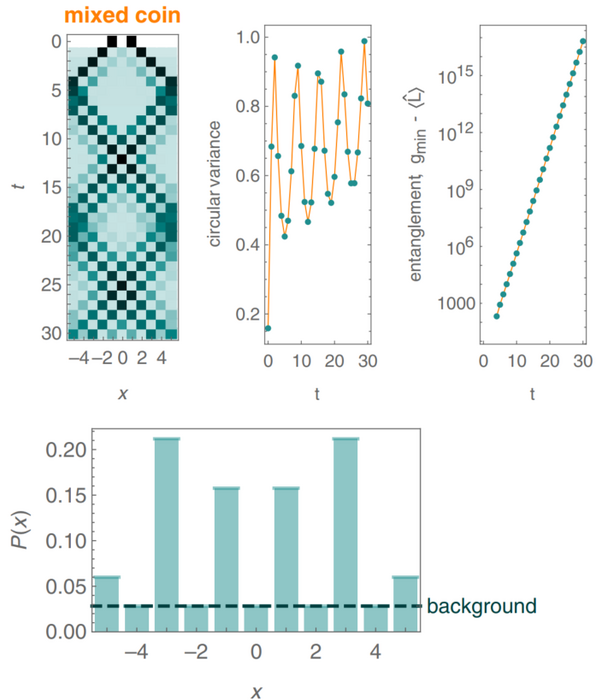The next information technology revolution is the quantum computer, promising a performance boost that exceeds contemporary devices. One key application of such a quantum device is to simulate otherwise inaccessible quantum processes, advancing our understanding and exploitation of large-scale systems, being relevant, for example, for simulating complex chemical processes and advancing drug development. By introducing nonlinear processes as a core component of the function of a quantum walk, we show in this work that our new approach is capable of dynamically producing different quantum phenomena, such as entanglement and squeezing, during the evolution of the system. This sets our methodology apart from other state-of-the-art quantum walks which are based on linear coherence effects alone. Our research therefore connects nonlinear processes with highly sought-after quantum simulators. At the same time, fundamental quantum superposition effects can be studied in this manner, paving the way for discovering new physics in time-dependent, nonlinear systems.

